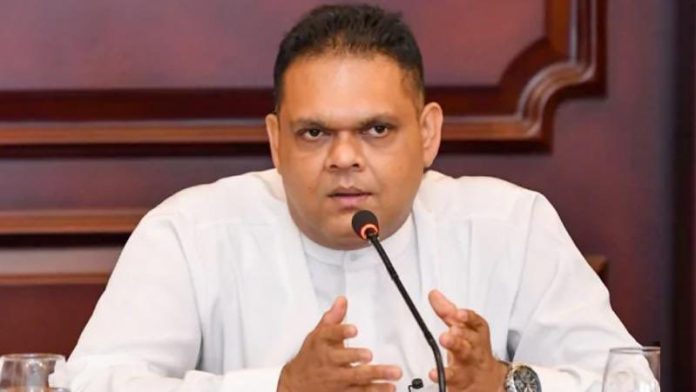COLOMBO, Feb 27 : The Sri Lankan government’s policy to introduce cost recovery pricing for utilities has led to a turnaround in the state-owned enterprises during 2023 amidst the economic crisis faced by the island nation, a minister said on Tuesday.
State minister for finance Shehan Semasinghe while addressing an economic seminar here said some 52 state-owned enterprises (SoE) which had recorded a loss of 743 billion Sri Lankan rupees in 2022 had recorded a profit of 313 billion rupees during the first nine months of 2023.
Among these were the state fuel entity Ceylon Petroleum Corporation (CPC) as well as the state electricity board.
“Under the reform programme, the cost-effective pricing introduced caused these profits,” Semasinghe said.
He said all previous governments had overlooked the sustainability of SoEs by providing subsidies for fuel and electricity to give economic relief to the people.
Semasinghe said providing state subsidies for utilities was the main reason that caused the bankruptcy of the economy.
He said the current government policy to mitigate the economic crisis by charging cost recovery tariffs and then granting welfare benefits to two million vulnerable people through the relief fund ‘Asvasuma’ were important turnaround measures.
He said 400,000 Sri Lankan rupees extra were included in the welfare programme for its second phase which was launched two weeks ago.
Under the current International Monetary Fund (IMF) bailout, Sri Lanka is necessitated to restructure all loss-making SoEs, including the state power entity, Srilankan Airlines and the state telecom provider among others.
At the same time, President Ranil Wickremesinghe has encountered stiff political resistance for reforms making him unpopular in the election year.
In an unusual move, Sri Lanka’s powerful Buddhist clergy also conveyed their strong opposition to the Wickremesinghe-led government’s plan to privatise loss-making state enterprises as part of reforms to revitalise the country’s bankrupt economy.
The monks form a powerful part of Sri Lanka’s governance in the Buddhist-majority country and the political leaders are by convention required to pay heed to their advice on governance.
Sri Lanka, for the first time since independence, declared its sovereign default in mid-2022 as street protests raged over the unavailability of essentials in the resultant forex crisis.
Wickremesinghe’s reforms, in tune with the IMF programme, have caused an economic burden on the public due to raised utility tariffs.
The reforms implemented and to be implemented would cause political unhappiness for the voting public in this election year. The presidential election is due to take place before the end of November. (PTI)


